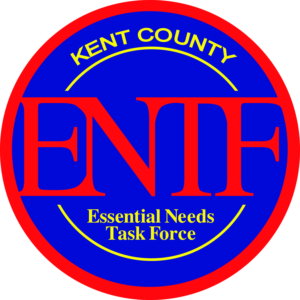
ENTF and WMSBF Spearhead Expanding Dialogue and Collaboration to Reduce Need for Emergency Energy Utility Assistance in West Michigan
November 27, 2020
West Michigan Sustainable Business Forum worked with the Energy Efficiency Committee of the Kent County Essential Needs Task Force (ENTF) to increase the involvement of energy innovation and sustainability professionals with agencies responsible for supporting emergency utility needs with the hope of decreasing the need for emergency utility assistance in West Michigan.
The Kent County Essential Needs Task Force was formed as a response to the struggles facing Kent County residents in meeting their basic needs. The committees of the ENTF are an evolving reflection of those basic needs that the community has deemed essential to the success of its citizens. The overarching goal of the Energy Efficiency Subcommittee is to ensure that all Kent County residents have adequate utility service, with five specific success measures predicated on utility assistance, weatherization, and education.
According to the 2019 Kent County Community Action Community Needs Assessment, 34 percent of Kent County survey respondents said they had received a utility shutoff notice in the prior year. A survey of service providers attributed this to a combination of rising energy costs and low income (KCCA, 2019). On average, low-income families spend around 15 percent of their income on energy. It is the second most frequent request on 2-1-1 assistance calls.
Kent County Utility Assistance by Zip Code (at right): This figure shows where utility assistance was utilized in 2018 to support payments for electric, gas, deliverable fuels, water, or weatherization improvements in the home. The highlighted areas in the map correlate to many of the areas of the county where there are heightened percentages of low income households.
Convening on Energy Innovation and Utility Assistance (below): Images from the facilitated dialogue on December 9, 2020.
Groups discussed potential challenges, collective resources, and how such resources could be leveraged to address emergency utility assistance and mitigate the need for future utility assistance.

Collaborative Planning for Network Improvement
WMSBF and ENTF convened a group that included local advocates, service providers and a leadership group of Kent County Community Action, Michigan Department of Health and Human Services, Michigan Public Service Commission, Michigan Energy Options, GreenHome Institute, and Elevate Energy to educate one another on the dynamics and demand for emergency utility assistance in West Michigan and various options and resources for energy innovation projects and weatherization across the state. Both service providers and energy innovators held discussions at Energy Efficiency committee meetings throughout the fall, culminating in an industry and community dialogue for 90 people representing 21 businesses, 31 community based organizations, 15 city/state offices, eight utilities and two neighborhoods.
This effort achieved four general objectives:
- Introduce sustainability practitioners and energy professionals to the dynamics of energy assistance,
- Facilitate connections between assistance and weatherization agencies and energy innovation field,
- Develop ideas that leverage energy innovation and industry expertise to improve utility access,
- Test feasibility and interest for ongoing partnerships, projects or initiatives.
During the community event on December 9, 2019 in downtown Grand Rapids, participants heard from representatives of the leadership group and selected one of six solution tracks developed through the fall planning process. Groups discussed potential challenges, collective resources, and how such resources could be leveraged to address emergency utility assistance and mitigate the need for future utility assistance.
The compiled list was then categorized with five solution themes in order of frequency of responses: Collaboration, Policy/Advocacy, Education, Data, and Technology. These findings are now informing the ENTF Energy Efficiency committee as it develops an action plan focused on asset-based solutions.
Focus Area and Recommendations
Data – Income audit– Inventory of homes
Education– Educational resources highlighting emergency utility assistance options – Household energy audits – Resources for youth (K-12 and young adults)
Technology – Upgrade from propane to electrification – Implement meters to be notified of low propane tank levels – Right-sized homes
Policy – Community solar, right-sized homes, and batteries for storage– Proactive unrestricted funding – Master metering for multifamily unit housing and transparency of utility costs– Mitigating deferrals for weatherization
Collaboration – Master list of resources available to families who are experiencing utility insecurity

